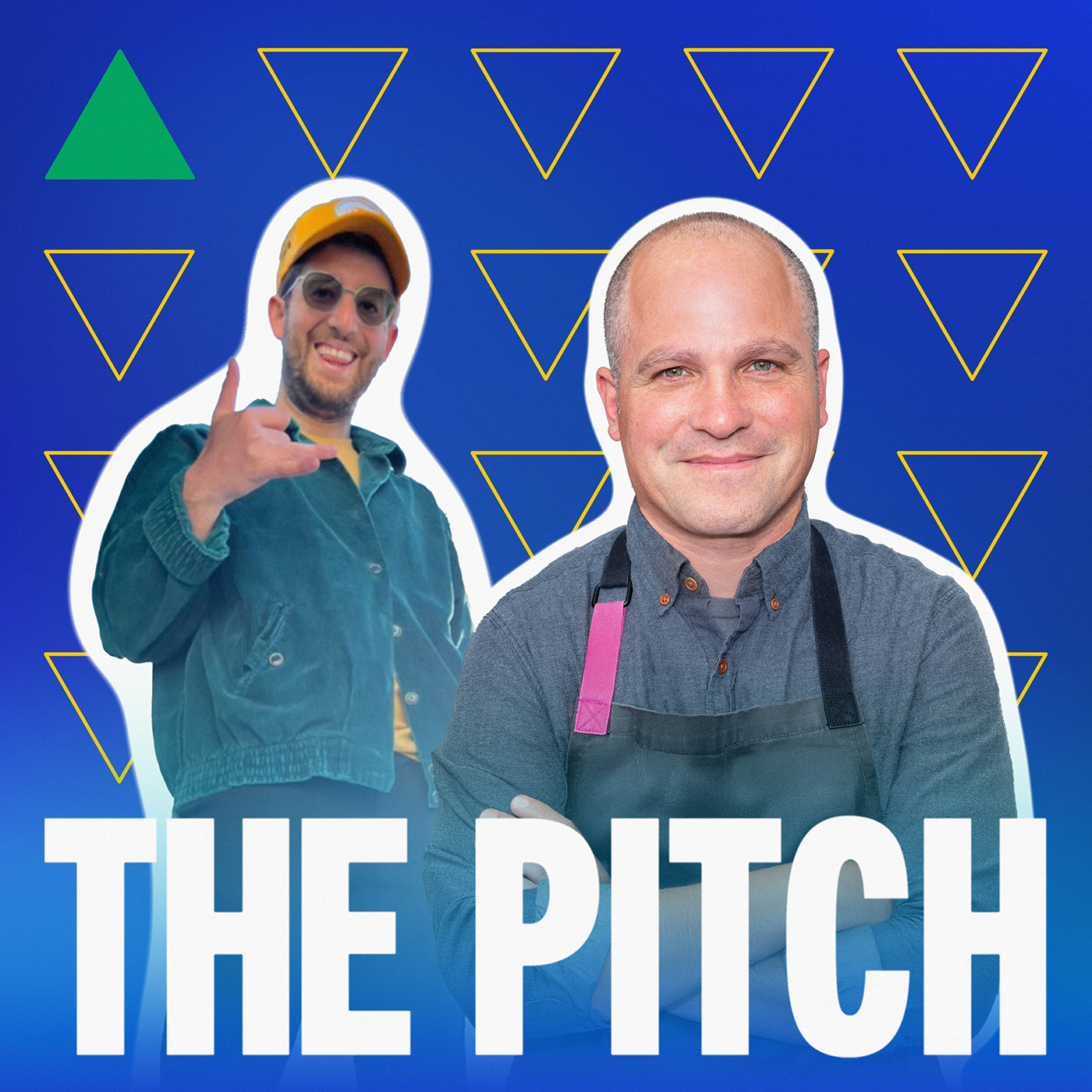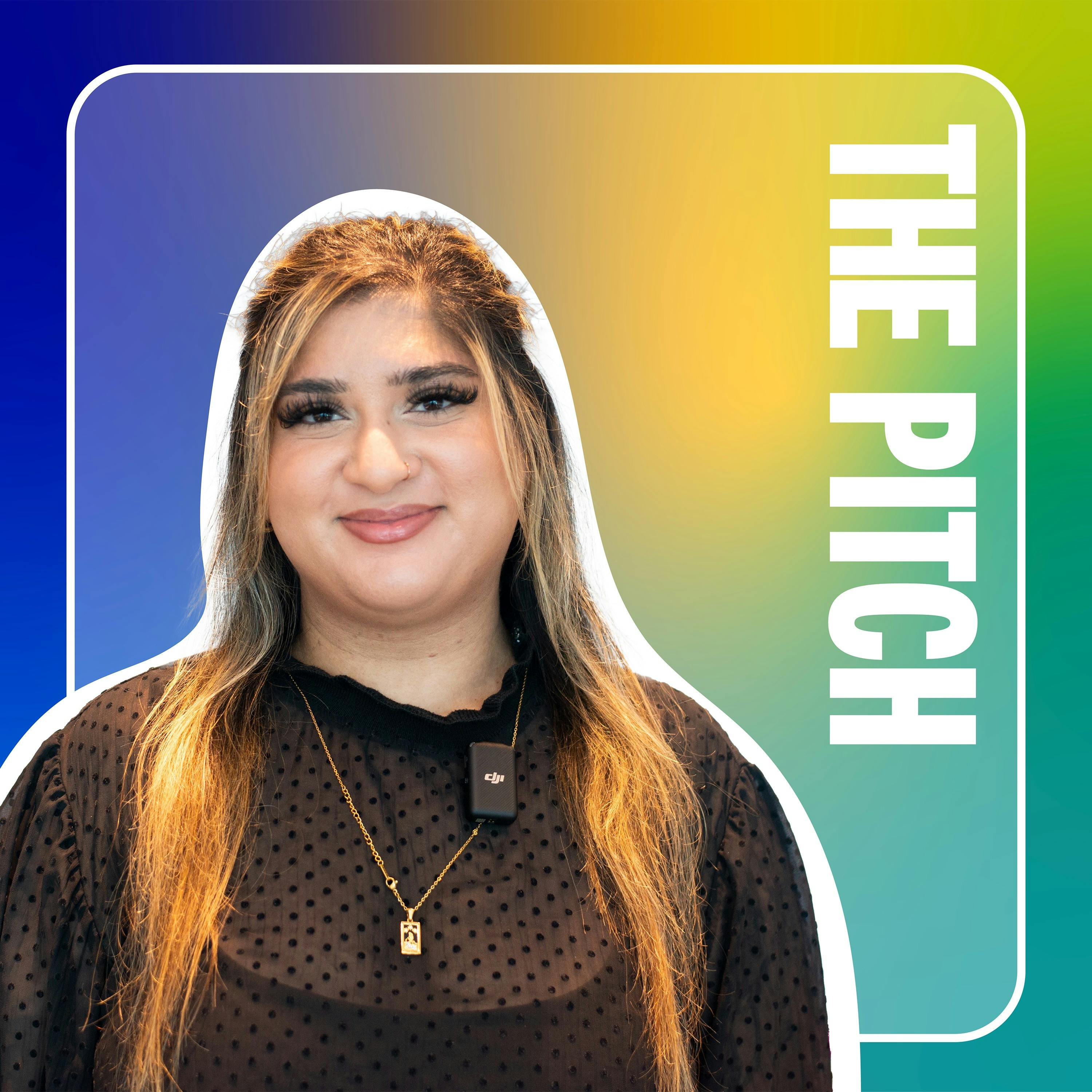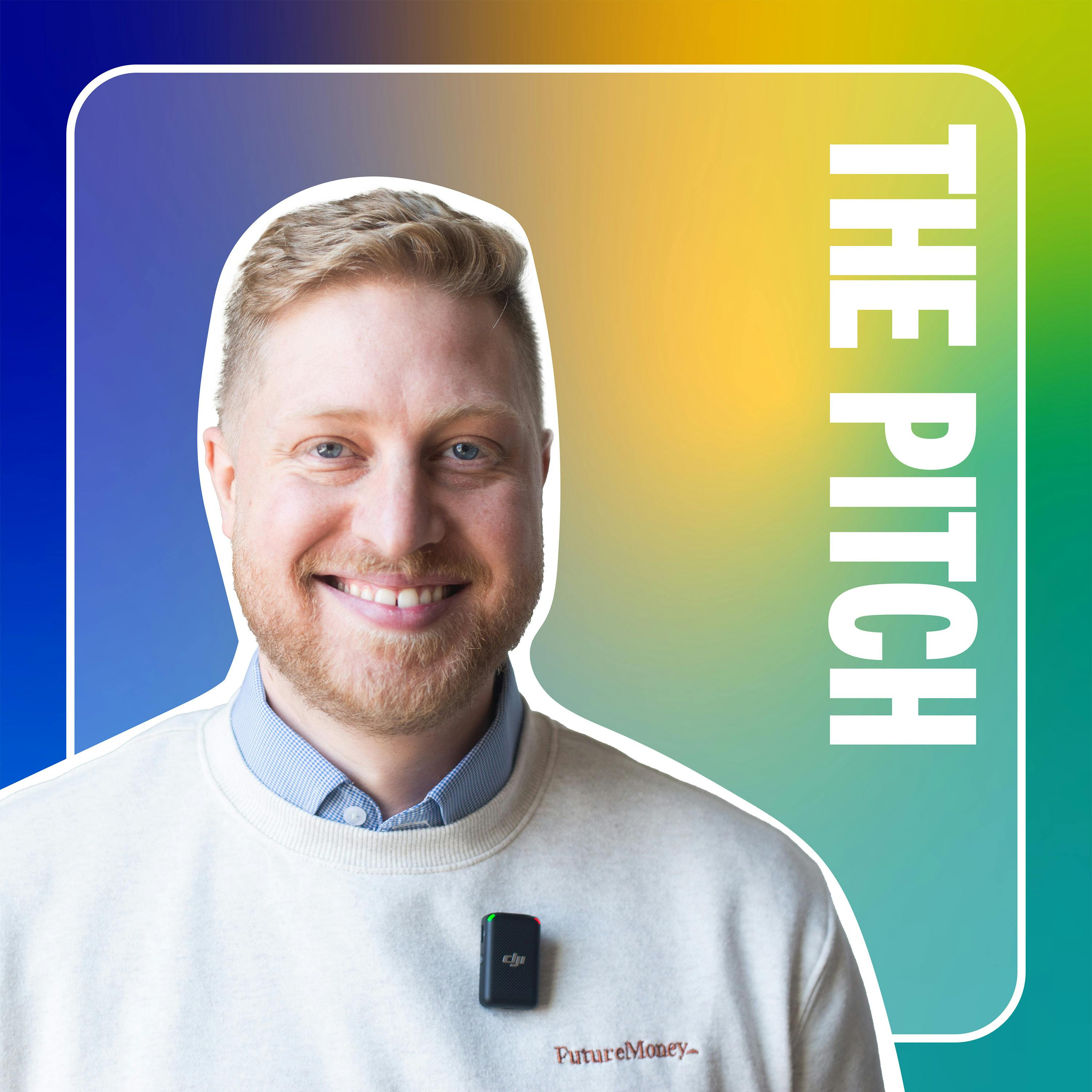#32 Is Immigration the Next Venture-Scale Business?

The U.S. immigration system is a bureaucratic nightmare. And it’s only getting worse. Founder Xiao Wang has a plan to solve that with his startup, Boundless.
Today's investors are Jillian Manus, Daniel Gulati, Phil Nadel, and Michael Hyatt.
Enoying the show? Use this link to text a friend!
I’m Josh Muccio and from Gimlet Media, this is The Pitch, where real entrepreneurs pitch to real investors.
Xiao: Good morning. I'm Xiao.
Michael: Hey. Michael.
Daniel: Hey. Daniel.
In the pitch room today is founder Xiao [sh-OW] Wang. He’s here asking for $3 million dollars for his startup, Boundless. Which is tackling a pretty hot button topic, immigration.
Not only is the issue politically charged, the immigration process is notoriously complicated. Something Xiao knows all too well — because he’s been through it. But wanting to solve a problem is one thing — building a solid business around solving that problem is something entirely different.
Here’s who he needs to convince:
Daniel: I’m Daniel Gulati
Daniel is a serial entrepreneur turned vc with Comcast Ventures,
Jillian: I’m Jillian Manus
Jillian is a partner at Structure Capital and an angel investor on the side.
Phil: I’m Phil Nadel
Phil is managing partner of Forefront venture partners with over two decades of investment experience.
Michael: I’m Michael Hyatt and I invest my own money.
Michael built and sold two Canadian companies and now he invests for himself.
Alright, let’s see how Xiao does…
Xiao: All right. Good morning everyone. My name is Xiao Wang and I'm the co-founder and CEO of Boundless. In 1989, I came over to this country with my parents from China. And when we first came over, we spent almost five months of rent money on an immigration lawyer because the stakes were so high and we had no idea if we were doing it right. in the 30 years since I went through this journey, the only thing that's changed in this industry are that legal fees have gone up, and there are 10 times as many immigration lawyers in this country. And about a year and a half ago I started asking a question of why?
Once Xiao began to dig into this question of why, he found the problem was even more complex than he could imagine. He spoke to hundreds of families with difficult immigration stories that echoed his own experiences. And then he interviewed hundreds of immigration lawyers and policy experts. He realized this process was one bogged down with convoluted legal code, opaque decisionmaking, and endless bureaucracy. And that’s when he decided, he had to do something.
Xiao: And so I felt so compelled that I had to create Boundless to be the first trusted and positive brand in an industry that hasn't changed in generations. So I'm looking for $3 million and the right partners who want to dramatically improve the lives of millions of families accelerating our growth trajectory, and actually winning an industry.
Daniel: That's great. Can you maybe give us a sense of the actual product?
Xiao: Yeah. So what we do is... We are the first trusted partner for people, as I said, for people through the entire process So on our application, through our website, they can get all their information, upload all their appropriate documents, in an exceptionally short amount of time. Afterwards, they actually have an independent lawyer who reviews these information
All right, so the way Boundless works is instead of meeting with an immigration lawyer and manually filling out all these forms, a would-be immigrant logs onto the Boundless website, fills out the immigration application, and the system takes it from there - automatically populating all these government forms, an independent lawyer looks it all over, and that package gets submitted to the powers that be.
In short, it’s TurboTax for immigration.
Xiao: Our first product is marriage green cards. So you are a US citizen or green card holder, and you fall in love with someone who's not, and you either want to bring them to the country or keep them in the country. And so we complete the G-11-45, the I-45, I8-64, I8-130, I7-65 and I1-31.
So if you actually know what all those forms are, you’re probably an immigration lawyer. But if you’re like the rest of us, you have no clue. And that’s the point of Boundless. It streamlines immigration applications and allows clients to complete in 3-6 weeks, a process that normally takes 3-6 months.
In this case, Xiao is showing investors how Boundless helps simplify marriage green card applications.
Phil: You said this is your first product? Is this the only product so far?
Xiao: This is the only product so far.
Daniel: How do the categories kind of play out? Like marriage green card, what is that as a percent of the market?
Xiao: So there are 400,000 marriage green card applications a year. We charge a $500 fee for our service. So that means, this is a $200 million market, which is interesting, but not huge. And the reason why I love this market to start, is because of three primary factors. One is there's no artificial cap or delay. This is the fastest process. So on average, it takes seven to 13 months. I'm really excited because last week we had two people actually get their green cards already. So we can actually show success much quicker.
Phil: And how many have you had? How many customers have you had on this product so far?
Xiao: So we've had a little over 150, since we launched in September. So we've been growing 50% month over month in terms of number of customers.
Jillian: At a $500 fee?
Xiao: At $500
Michael: So can you stop for a second and talk about the actual math and the business here? Talk to us about this $500. What's the gross margin here? How does this scale to be a really big business? I mean, the numbers you've put forward so far don't seem to indicate that this is an investable big business. It's great what you're doing, but I'm trying to find a reason to invest.
If you haven’t noticed by now, Michael is, let’s say... the least sentimental of our investor panel. He wants to see the cold, hard numbers and understand just how a business is going to make him money.
Xiao: if you look at the category just in the US, there are 2 million total green card and naturalization applications a year. There are about 12 million non-immigrant applications a year. So those are like work visas, travel visas, student visas, etc. There is close to a million employment-based green cards and processes. that's about a $4 billion pure transactional market that we can address. Just in the US. And then you think about this as a platform for going from country to country, then you take a couple of multiples on that for the rest of the world.
Michael: Again, I want to go back to the math question. The $500 fee that you're charging the person to come over, once you run that through money you pay the legal review, money you pay... What does that leave you?
Xiao: Yeah, so... right now, what we're on track to be able to do is to get our customer acquisition cost down to about $125, And then the legal review, it's going to be under one hour, and we're paying our outside counsel $40 - 50 an hour.
Jillian: So but what is it now? What is your cost of acquisition right now?
Phil: And the numbers as of now, in other words. Not what you're aiming for.
Xiao: So as of now, so out of $500, our customer acquisition cost is a little over $400.
Jillian: $400 dollars?
Xiao is saying that on average he has to spend $400 in order to sell one $500 dollar marriage green card. And that’s only marketing costs, that’s before paying lawyers or salaries or any overhead.
Michael: At $500, you're not even close to making any kind of profit on an individual basis, right? So you might be charging 500 and it's costing you 700 right now. 800?
Xiao: I would say that it's...That's about right.
Jillian: Why 500 then? Why not at least cover your basic costs? because it would cost so much more for any of these applicants to hire a lawyer. I mean, 500 an hour. So I think that perhaps you're not pricing it as…
Phil: Let's hear. How did you come up with the $500 price point?
Xiao: So when I first started, before I built the product, I created a separate company that was just pitching the set of value props, and the set of services at different price points. And the $500 point was where it was the highest price that I was setting with the level of interest that we have. But I want to maybe take a step back here and talk about this not as a business model unit economics story for today, as opposed to where I want to go.
So Xiao’s saying: “I’ve been at this a while now, customers simply don’t want to spend more than $500 and there’s a lot more to this story than just the numbers...”
Xiao: I'm trying to build the world's largest data set of immigrants that no one else has. And to do that, we're focused on how do we acquire customers? And how do we delight the shit out of them? And then after that, then is when we can start bringing in all of these other products, because they already trust us and they already come to us on a regular basis for information.
Phil: Did you say delight the shit out of them?
Xiao: Yeah.
Phil: Okay. Just checking.
Michael: Have you increased the price ever?
Xiao: From $500? We have not yet. So we haven't done any experiments on the price side. But I wanna say this is what is exciting about... we do the first green card right now. In two years, they have to go from a conditional to a permanent green card. Which is another transaction. And then a year after that, they can do naturalization, which is another transaction. There's no reason they would go to anyone else for their future applications because they have to start from scratch again.
Xiao’s pushing the investors to look beyond today’s numbers, past high costs and low profits, to where he’s focused - the future. One with return customers, data plays, and new products. But the key word here is ‘future,’ and it’s not clear how he plans to get from here to there.
Michael: Talk to us about the $3 million. What does that buy us? What is that for?
Xiao: So this is what I’m saying about about a very unique opportunity in time. Traditionally, and I'm just being honest here, I have $2 million in the bank. I raised a seed round last April. I have most of the round still. this would be a very different conversation if we had this in 8 months when I said, okay, like we're making a lot of money, we have a couple of thousand customers, we already signed up a few partnerships and contracts. Help me scale. And I think that's the original intention in this type of conversation. But what is really exciting is that we're in this singular moment right now. And this moment might not exist 8 months from now.
Michael: Okay. Slow down. You've raised $2 million. That's in the bank. Or you raised more than that?
Xiao: I raised more.
Michael: Okay. How much more have you raised?
Xiao: So I raised 3.5.
Michael: 3.5 million, you spent 1.5. How long does 2 million last you on your current plan?
Xiao: Through early next year.
Daniel: What's the thesis around the raise? Why raise now? And why dilute yourself more?
Xiao: To kind of to your question, which is why I think it's a very timely moment in this industry, where if the net goal is that I'm going to be the brand in immigration, right, so I want to own the entire space. And I want at every community potluck, piano recital, like wherever people are, and immigrants gather in very tight-knit communities, and they always talk about immigration, I always want Boundless to be in that conversation. And to get there, this moment right now where people are green card holders, are being deported, and being rescinded, and the administration is expanding the definition of who no longer qualifies for a green card or can lose their green card, there's a huge amount of anxiety and uptick. Naturalization applications are up 30%. People really want to move forward in this process. There are 9 million people who are eligible to naturalize and don't. And when they did a nationwide survey they found that over 60% was because they had no information about how to naturalize. And that's like exactly what we do.
Xiao’s vision for Boundless isn’t just to increase revenue and bring down his marketing costs — it’s to become the company that millions of immigrants look to for help with naturalization and immigration. As he said, he wants Boundless to “own the entire space.”
IT’S DECISION TIME.
Has Xiao convinced investors to set aside their concerns about his numbers and focus instead on his larger vision?
Michael’s up first.
Michael: So I... I like you. I think you're very smart. You've done a lot of very smart things. You're passionate. You're thoughtful. So in that bucket, I check that off. In the market, it's super interesting. I mean, Canada, where I'm from, We have a real problem in immigration, is that we need a lot more immigrants. I immigrated to our country. This is a big, big issue. I guess my, when I step back and I look at this, I don't think your business is actually that investible right now. What I expected to hear was after raising 3.5 million that you would have thought through the business a little more. But I wanted you to come here today, at the stage you're at, and the amount you're asking for, is to say, listen, this is what we worked out, this is how much money, this is how we're going to get to a bigger bottom line. I was expecting you to really lay out ancillary services and actually lay out some more math to your business. So far I haven't heard that you have what I call a 10x on the issue. You haven't come here and said, I'm bringing something to the table that's awesome and new. I like the idea that you're going to play with data; that's smart. But I really haven't seen anything that sets you apart. So for those reasons, I'm passing. But I wish you the best.
Xiao: Thank you.
Michael’s out. Here’s Daniel.
Daniel: So, as I step back here, you know, I think it's really... It's really easy to overthink this market. I think it's kind of easy to look at it and say, it's kind of this small pocket of the world, it's a tool it's non-recurring, it's low gross margin today. And so I think there are reasons to not make the investment. But I think there are always reasons not to make investments, I think you're going about taking this market really thoughtfully. I think you're building a really interesting brand. So I think, you know, as I step back, you seem like a really thoughtful founder, sort of the exact type of founder that we like to back. You're kind of innovating, in what I consider to be, what obviously I think is a pretty broken industry. But one that's really big. So I would like to invest. But overall, I think you're a tier one founder, operating in a pretty interesting space, with the opportunity to build a really big business. So I would love to back you.
Daniel’s in! Now it’s on to Phil.
Phil: I couldn't agree more with everything Daniel said. In fact, I just think your approach to this is very smart, very well thought out. You're right in that this is a relationship business, and I see... Normally I focus on KPIs today. But I see huge opportunities for lifetime LTV in this, both through additional immigration services and wraparound services and other things that you can do with the data. It's a data play. And there's a lot of value there. And it's a data play, but it's also a relationship play right? The relationships that you're building with these folks can lead to a lot So I think that's very smart. I'd like to invest as well. I really have a great feeling about you. And I just like your approach. And I'd like to invest.
Xiao: Sounds great. Really appreciate it.
With both Daniel and Phil in! The last up is Jillian.
Jillian: I put this in the category of one of this country's dumbest problems. Immigration. It's kind of a shameful, it's a shame on you, that we have a country that was built on immigrants, and the intel and the intellectual capacity, the emotional capacity to invest everything that they have in this country to build it to where it is today, to one of the greatest countries So on a high level, I'm very excited about this in terms of your mission. In terms of you, you can't get a more crackerjack founder. With your background, with your intent, with your self awareness I love this. And for all the reasons. And I deeply respect you. I do want to come in and I want to help you get this done And I would be honored, actually, to invest in a company that would create an easier path to fortify the foundations of this country, with immigrants not without immigrants.
Xiao: I'd be honored to go down this path with you.
Jillian: Fantastic.
Daniel: Awesome. Thanks for coming in.
Phil: Great job.
Jillian: Thank you so very much.
Xiao: Thank you for your perspectives.
Xiao leaves the room having reeled in 3 out of 4 investors on a business that’s yet to be proven, but feels like it could be a big opportunity.
Back in the pitch room, the investors debrief...and things get a little testy.
Phil: Wow. Impressive guy.
Jillian: If you take apart a founder, and you take apart a product, at the very early stages, he checks every single box and then some. He is going to do with everything with intentionality. He is going to look at the efficacy If I could have given a million dollars I would like right on the spot. But this is just such an easy sell. And part of the national discussion. We all have to be a part of this solution.
Daniel: I also think it's just an ugly market.
Jillian: It is.
Daniel: And it's just a really, it's just a nasty space.
Phil: Cumbersome and confusing.
Michael: You know what, I listen to you guys, you guys are all very smart. I listen to it, and listen maybe it's because I'm coming a different perspective. But listen, here...
Jillian: Maybe it's because you're Canadian and you don't have that knee jerk reaction we have.
Michael: No, I get it. No, I understand the politics of it and I understand. But maybe I looked a little more unemotionally. I'm not caught up in the moment of the passion of the immigration. I mean, I'm an immigrant. I get it. But look, let me tell you, I want someone to come on in here and understand how to build a big company, how to build big revenue and understand it. I don't necessarily agree with this idea that here's a bunch of a million bucks, I know in the Valley we do this a lot, here's a whole bunch of money, and you know, you're a great guy, you're going to go figure it out.
Jillian: No, that's really under...
Michael: Hold on, let me finish. So I don't back companies based on this idea that you're going to get a lot of money and then hopefully because you're a good guy you're going to figure it out.
Jillian: Nor do we!
Michael: Well, kind of.
Jillian: Not at all!
Michael: And so I kind of expected at the next 3 million bucks, because he's raised 3.5, he'd come in here with a bit more - this is just me. I would have liked him to come in here, and a little more structure on how he's going to grow this business to be a big revenue business. I'm old school. I like things called revenue. I like things called gross margins. I like a way to a bottom line. It's going to take some time. Call me crazy.
Jillian: No, no wait. We understand that. But this is, actually the follow up on this is that we drill down into the business, and the unit economics. We actually drill down into the projections and there is a lot more conversation.
Michael: Yeah, and I'm not sure what you can drill down on, because what he came in here with is he doesn't have anything to drill down on.
Jillian: I disagree.
Phil: but to your point...
Daniel: I think you're saying he's not there yet. Which I agree. But I think he did lay out that exact path.
Jillian: If he was there yet he wouldn't need our 3 million.
Michael: Well, I will listen to the epilogue and the rest of this podcast.
Phil: And Michael, normally I'm in your boat when it comes to... Normally, I want to see the metrics today. Today. And where are you going with it.
Michael: No, I didn't want to see the metrics today. I get that he's early. I wanted him to tell me, hey, this is the waterfall. And he's just like spinning...
Daniel: But I thought that was the whole presentation.
Michael: I get, you know, in America, we're getting caught up in the immigration thing, getting caught up with passion, but I'm not getting caught up in that emotion. What I'm getting caught up in is that I want to know...
Jillian: He did! But he did! That was the whole presentation.
Michael: Listen. And this is a service business. This is not a SAAS company.
Daniel: Today. You're investing in...
Michael: Did you hear AI? Did you hear blockchain? Did you hear things that are going to make this more efficient?
Daniel: No. Because I think he's got, he's solving a real problem, he's got a clear plan to go from 3 hours to an hour.
Michael: And he's going to be a service company that's technology enabled.
Daniel: And he's got a clear path to expanded LTV.
Michael: I think this is a great service business.
Daniel: Today. Today. It's a shitty service business today.
Michael: I think it has potential to be a good service business. But I don't see anything stunning about it.
Phil: Let’s take a break. Agree to disagree.
Jillian: Agree to disagree.
Yes, let’s all take a break.
When we come back, what happened when the investors drilled down on this deal.
[break]
Welcome back! I caught up with Xiao about 2 months later. What I really wanted to know was: was Michael right? Were the investors too caught up in the emotion of this pitch and not focusing enough on the cold hard numbers?
Josh: Xiao, what's the latest. Anything new since we last spoke?
Xiao: Yeah. So there’s good news and there's less good news.
What Xiao told me was kind of surprising. Sure enough, after the pitch, the three investors who went in on Boundless dug into the numbers and drilled down on the business. But before they could even invest, another investor swooped in and offered to lead the round at a higher valuation. This priced Jillian and Daniel out of the deal, but Phil?
Xiao: So Phil’s in, which is great.
Josh: Phil’s in! Ok!
Xiao: And what’s great...What I love about this is that like, and it's a testament to Phil and his perspective, is that from everything that I’ve heard on the show and he says and from talking to him, you know he's the most metrics driven investor out of all of them and so for him to see like hey not only where we are today which is relatively early and small but growing, to where we can be, is really exciting.
Josh: All right. So how much is Phil coming in for?
Xiao: So he is coming in for 300. So it's nice to get that thumbs up.
Josh: Yeah.
Xiao: And it was like, it was a great feeling because… he is one of the most diligent and detailed investors I've ever worked with. Which is incredible because it's actually pushed me to be better, right? Because he would actually look at my operating model and say ‘Wait why did you feel like this is going to happen?’ and ‘why is this the lever that drives that?’. And these are conversations that you don't usually have this early because the business is so nascent but at the same time it's actually been...I think his perspective and his talent in this is actually push me to think more about different aspects of the business which is sort of a leading indicator of why I think he'd be great to continue to work with
Josh: Wow I'm going to be honest this is not how I saw this playing out. Like I thought this was a Daniel and Jillian deal. And I felt like with as early as things were with you guys and as as kind of speculative as some of the numbers were on customer acquisition which was a big thing in their pitch that they were pushing on like definitely not Phil. I was actually surprised when he did invest.
Phil: I’ll comment on that. I think they do have very good early metrics.
This is Phil, obviously.
Phil: Number one, customer acquisition cost has come down, has declined, quite a bit since he pitched us.
Josh: Oh, so it’s not that $400 anymore?
Phil: No, it’s lower. But that’s only sort of part of it. when you talk about early metrics, even though the numbers...in this case I’m happy with the early metrics, but even in cases where they’re not so attractive, if you have a group of really smart founders and they’re targeting a great market with a great product and they have lots and lots of runway and supportive investors, they’ll figure it out. If you give smart people enough time to solve a problem, they’ll solve a problem. That was the other thing that on the Pitch that day, I felt like, ‘OK, this is a smart guy going after a huge market with very, very little, or almost no, significant competition.’ And he has lots of time by virtue of the fact that he has a long runway. Does that make sense?
Josh: It totally does. I love that. Give smart people enough time and money and they’ll figure it out.
Phil: Yeah.
So remember after the pitch when Michael said investors in the Valley like to say, “Here’s a bunch of a money, you’re a great guy, you’ll figure it out.” He was certainly oversimplifying the reasons that VCs invest, buuuut, he’s not wrong either.
Regardless, Phil isn’t the only one who believes in what Xiao is doing. Boundless now has three pilot cities on board to help co-develop their products, and Xiao is close to wrapping up this round of fundraising.
Our show is produced by me, Josh Muccio, Molly Donahue, and Kareem Maddox. We are edited by Devon Taylor.
We are mixed by Enoch Kim. Original music composed by The Muse Maker. Our Theme Music is by Breakmaster Cylinder.
Lisa Muccio plans our recording events.
And as a reminder, no offer to invest is being made to or solicited from the listening audience on today’s show.
All right -- you’ve been listening to The Pitch from Gimlet Media. We’ll be back with a brand new episode, next Wednesday.

Investor on The Pitch Seasons 1–11
Jillian Manus is Managing Partner of an early-stage Silicon Valley venture fund, Structure Capital. Branded “Architects of the Zero Waste Economy," they invest in underutilized assets and excess capacity. She was named one of the top 25 early-stage Female Investors by Business Insider in 2021. Jillian serves on numerous corporate and non-profit boards, these include: Stanford University School of Medicine Board of Fellows, NASDAQ Entrepreneurial Center Board of Directors, Fuqua School of Business at Duke University.

Investor on The Pitch
Michael Hyatt is a serial entrepreneur and active investor. He is the co-founder of BlueCat, (acquired by Madison Dearborn Partners), and previously co-founded Dyadem (acquired by IHS). He currently serves as a Director of BlueCat and is also a weekly business commentator on CBC, is the Host of “Business Unplanned”, a podcast to help small businesses.

Investor on The Pitch
Daniel Gulati is the Founder and Managing Partner at Treble Capital, an early stage investment firm that invests in consumer internet companies ranging from marketplaces, to gaming, to digital health. Before starting his own firm, Daniel was a serial entrepreneur, and then a managing director at Comcast Ventures. There, he he led investments in consumer startups that have since grown a combined enterprise value of $4 billion.












